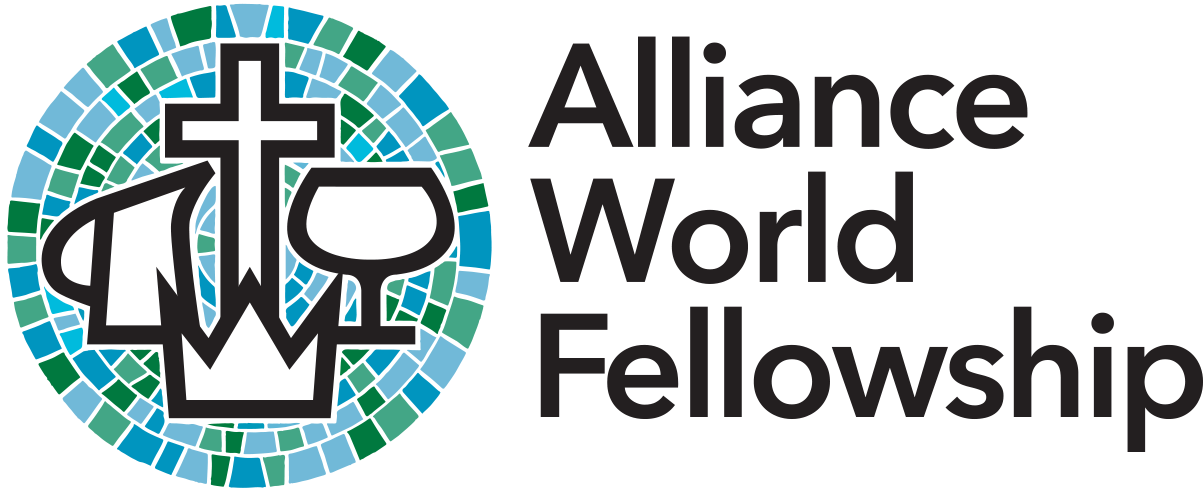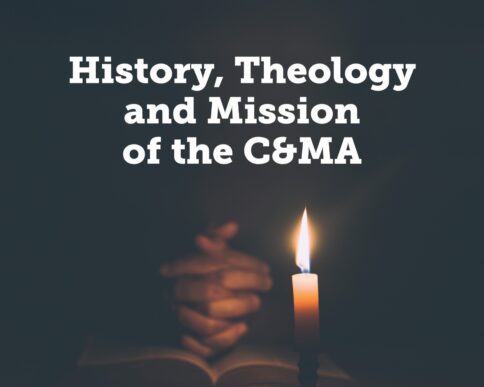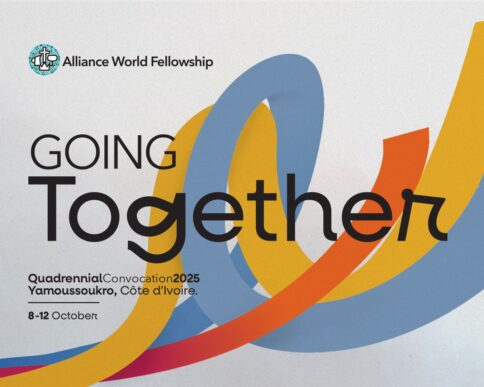Mutsuko Ninomiya: Pioneer Missionary from Japan to Brazil
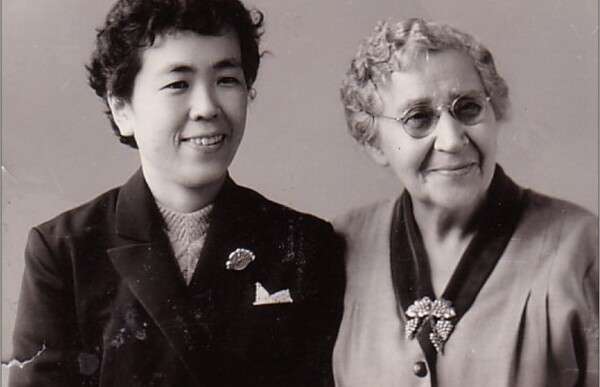 Mutsuko Ninomiya and Mabel Francis
Mutsuko Ninomiya and Mabel FrancisRelated News
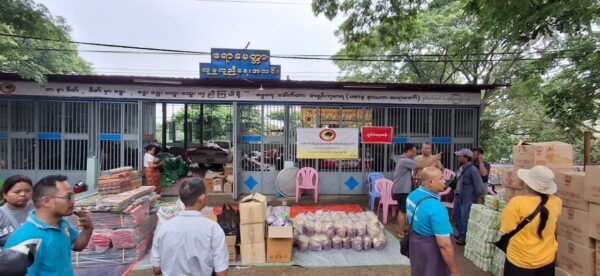
Alliance Churches in Thailand and Myanmar Respond to Dual Crises
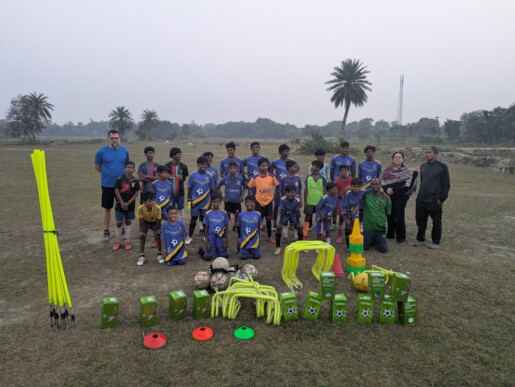
Football and Faith: A Growing Legacy in India
Inspired by the kindness of American missionary Mabel Francis, Mutsuko Ninomiya embraced Christianity and answered the call to serve as a missionary in Brazil, becoming a trailblazer as the first to be sent overseas by an indigenous Alliance church. Her unwavering faith and pioneering spirit led to the founding of the first Alliance churches in Brasília, leaving a legacy of hope and transformation.
Early Life and Calling
Mutsuko Ninomiya was born in Ehime Prefecture, Japan, on July 17, 1923. She lived through the hardships of World War II and was in Hiroshima in August 1945, surviving the atomic bombing of the city. In the war’s aftermath, as a young schoolteacher she initially viewed Christianity as the “religion of the enemy” due to wartime propaganda. However, her perspective changed when she encountered American missionary Mabel Francis, whose warm smile and kindness each morning drew Ninomiya to attend a Bible study in a humble house amid the post-war ruins. Through Francis’ witness, Mutsuko converted to Christianity. Sensing a call to serve God, she pursued theological training, attending Bible school/seminary to prepare for ministry.
Ninomiya began her ministry in Japan in the late 1940s, even doing pioneer evangelism in the rural San’in region of western Japan. Her zealous efforts took a physical toll. She collapsed from overwork and spent six years recuperating while serving as an assistant pastor at her home church in Matsuyama. During this period of recovery, she prayed for another opportunity to do pioneering missionary work. In a surprising turn, the Christian and Missionary Alliance church in Japan, known as the Japan Alliance Church, opened a door for her to serve overseas. Ninomiya felt a strong calling and was commissioned as a missionary to Brazil in 1959, becoming the first missionary sent by the Japanese Alliance church to Brazil. At age 36, with faith and determination, she prepared to travel to the opposite side of the world to spread the Christian message.
Mission to Brazil
Mutsuko Ninomiya arrived in Brazil in 1959 under the Japan C&MA mission board. To gain field experience and adjust to the new country, she spent a little over one year serving at a Japanese immigrant church in Maringá in the southern state of Paraná. There she observed how churches reached the local Japanese Brazilian community. A Methodist church in Maringá, for example, ran a Japanese-language school for immigrant families, and that helped Mutsuko connect with people. A trained teacher herself, Ninomiya joined in teaching children, using language classes to serve the immigrant community and build trust. By 1960, Brazil’s national government was preparing to inaugurate a brand new capital city, Brasília, in the country’s interior. Mutsuko Ninomiya felt led to take the gospel to this frontier. After about a year in Paraná, she decided to move to the recently established capital region to begin a new ministry.
In 1960, Ninomiya relocated to Brasília – which officially became Brazil’s capital in April of that year – to plant a church where none yet existed. The conditions in early Brasília were rough: the city was still under construction, and in the nearby settlements there was often no electricity or running water. Friends and colleagues back in Japan warned her that it was an unsafe, unsuitable place for a single young woman to live alone. Although Mutsuko felt some fear and uncertainty, her faith propelled her forward. “Turning back without even seeing it for myself would be true unbelief,” she told herself, and so she pressed on to Brasília despite the obstacles. Her courage made her a trailblazer. She was effectively bringing the C&MA to Brazil’s interior before any other Alliance missionaries arrived. The North American C&MA only began work in Brazil a few years later, in 1962. Ninomiya’s move was historically significant. She was planting the seeds of the Alliance church in Brazil.
Founding Churches in Brasília
Settling in Brasília in 1960, Ninomiya immediately began evangelistic work among the Japanese immigrant population while also reaching out to local Brazilians. She chose to focus on areas of the Japanese community that were “unevangelized” – places where no Christian witness had yet taken root. In the satellite town of Núcleo Bandeirante just outside the new capital, which housed many construction workers and immigrant families, she started holding worship gatherings and Bible studies. At the same time, responding to requests from Japanese Brazilian parents, she started a small Japanese-language school as a service to the community. This school, called the Aliança Japanese Language School, opened in late 1960 – the first Japanese language school in the Federal District, the Brasília’s region. The very first classes were held on December 4, 1960, in a simple shack made of wooden boards on the farm of Midori Ishikawa. Through these language lessons, offered four days a week, Ninomiya built relationships with families, looking after their children and teaching Japanese reading and writing while also sharing Christian hymns and stories. Many of the students were not church members, but the school provided a bridge between the missionary and the broader immigrant community. In this way, Mutsuko Ninomiya simultaneously laid the groundwork for a church while serving practical needs.
By 1961, a fledgling congregation had formed under her leadership. This would become the Brasília Alliance Evangelical Church, the first C&MA church planted on Brazilian soil. Initially meeting in homes and makeshift facilities, the congregation grew over the years. Ninomiya conducted worship services in Japanese for the immigrant believers and learned Portuguese to communicate with Brazilian neighbors. She traveled to outlying Japanese farming settlements around Brasília to hold outreach meetings, extending the ministry’s reach. Notably, she also worked among nationals in Gama, a town in the Brasília area, indicating that her mission had expanded to include ethnic Brazilian people, not just Japanese Brazilians. This led to the planting of at least one Portuguese-speaking fellowship. In the ensuing years, her perseverance bore fruit: a permanent church building was completed in Núcleo Bandeirante in the early 1970s for the Alliance congregation, and the various Bible study groups coalesced into established churches. The Brasília church thrived and became a bilingual community, serving both Japanese and Brazilian members.
Through her ministry, Ninomiya also mentored and raised up local leaders. Over time, God provided a new generation of pastors for the churches she started, including second-generation Japanese Brazilians and Brazilian Christians who answered the call to ministry. These leaders were able to minister in both Japanese and Portuguese, ensuring that the church served all parts of the community. Mutsuko’s pioneering work had laid a strong foundation. She was even influential in inspiring others to become missionaries. Through her mentorship, she encouraged a younger Japanese woman pastor to also go to Brazil as a missionary, multiplying the impact of the Japanese Alliance mission.
Later Years and Legacy
Mutsuko Ninomiya dedicated the bulk of her life to the people of Brazil. She continued to teach language classes and pastor the church for two decades. Even when health challenges arose – at one point she temporarily returned to Japan for treatment of a heart condition – she remained committed to her calling. Ninomiya continued her Japanese school classes until 1980, and her evangelistic work in Brasília spanned 36 years. In 1996, at the age of 74, she officially retired from missionary service and returned to Japan. By that time, the Brasília Alliance Church had its own local pastors and was well established. What began as a one-woman venture of faith in 1960 had grown into multiple congregations and a lasting Christian community in Brazil’s capital.
Mutsuko Ninomiya’s legacy is significant. She is remembered as the first missionary sent by an indigenous Alliance church to Brazil, and the one who planted the very first Alliance churches on Brazilian soil. Her courage and sacrificial service helped establish the Christian and Missionary Alliance presence in Brazil, paving the way for later missionaries from North America and elsewhere. The church she founded in Brasília celebrated its 60th anniversary in 2021, a testament to the enduring impact of her work. Even in her older years, Ninomiya was celebrated by the communities she served. She lived to see the “seeds” she planted bear abundant fruit. Her story of faith, from war-torn Japan to the heart of South America, continues to inspire Christians around the world. As one Brazilian publication noted, Mutsuko Ninomiya answered God’s call to a far-off land and built a legacy of love and sacrifice that resonates to this day.
